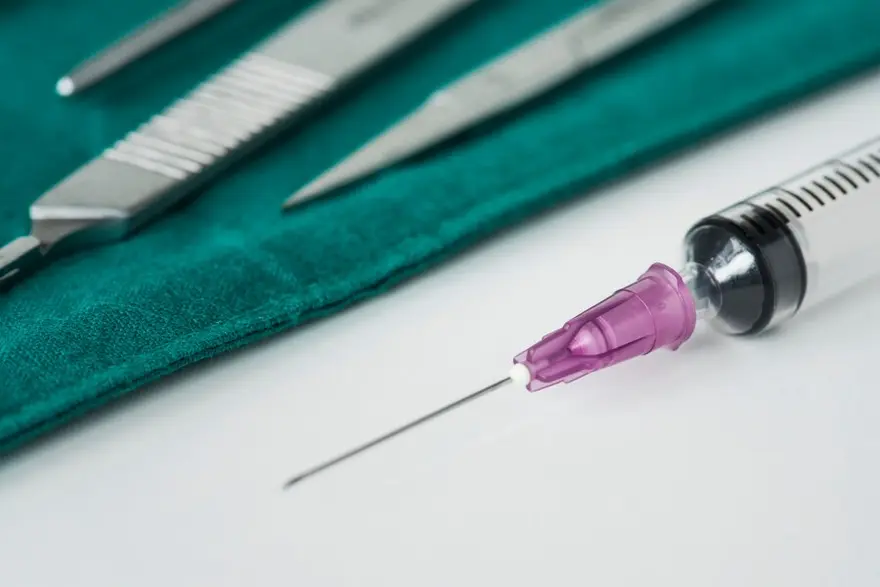Preventive Healthcare
All You Need To Know About FNAC Test

Table of Contents
- What is the FNAC Test?
- What is the purpose of the FNAC Test?
- What happens during the FNAC Test?
- What are the uses of the FNAC Test?
- What is the FNAC test procedure?
- How painful is the FNAC test?
- How to prepare for the FNAC test?
- What do FNAC test results mean?
- FNAC Test Positive Means
- FNAC Test Negative
- FAQ
- Conclusion
What is the FNAC Test?
Fine Needle Aspiration Cytology, also known as the FNAC test, is a simple, quick, and affordable test that is often done by doctors to assess a specific condition or body part. In this test, cells are aspirated (drawn out) from a particular body region using an excellent gauge needle. These cells are then sent to the lab, where they are checked under a microscope during several processes.
The FNAC test is used to diagnose inflammatory diseases and other malignancies.
What is the purpose of the FNAC Test?
The purpose of FNAC test are as follows:
- The FNAC test helps evaluate the presence of tumorous growths or lumps in various organs and parts of the body like the skin, armpit, groyne, etc.
- It helps diagnose benign and malignant cancers developed in deep-seated areas or organs.
- It helps differentiate between benign and malignant tumours.
- It can track the metastasis or progression of cancers from stage I to IV.
- Doctors can look closer at any fluid-filled cysts they find during physical examination, or that pop up in X-rays or/and MRI and CT scans.
- It analyses the risk of cancer recurrence after surgery, radiotherapy, or chemotherapy.
- It helps doctors understand the efficacy of treatment for already diagnosed cancers.
What happens during the FNAC Test?
Whether you need local anaesthesia or not depends on where the test must be carried out. An FNAC test uses a narrow-gauge needle attached to a syringe inserted into the area or organ that must be biopsied. This helps remove a small part of the affected area in the organ as a sample.
The healthcare professional performing the FNAC test sucks out fluid, cells, or tissues from the relevant area into the syringe before sending it to the laboratory for further microscopic evaluation. You may feel mild pain or inflammation at the test site after a few days, so your doctor may advise common painkillers.
What are the uses of the FNAC Test?
The FNAC test is used for various testing procedures, including body fluid sampling, chorionic villus sampling, breast abscess and cyst sampling, and seroma sampling. All of these tests are carried out through ultrasound-guided aspiration. The FNAC test is instrumental in the detection of breast cancer and in checking other swellings in the body for different malignancies, including lymphoma, tuberculosis, granulomatous lymphadenitis, and transmissible spongiform encephalopathies. In addition, this test can also be done to study any cytological alterations the patient may undergo during cancer treatment or advancement of the disease in the body.
What is the FNAC test procedure?
When taking an FNAC test, expect the following procedure:
- The healthcare professional will clean your skin with an antiseptic solution. This area will then be covered with a sterile drape or towel.
- They will then administer a numbing agent to the affected area under the skin.
- Ultrasound is used to identify the appropriate site for the fine needle aspiration.
- A thin needle attached to a syringe is inserted into the skin.
- The vacuum created inside the syringe helps cause suction, which draws out the body fluid or tissue needed into the syringe and needle.
- This procedure is usually completed in less than 10 minutes.
- The sample is further sent to a laboratory for analysis.
- You will be offered an ice pack following the test procedure for immediate relief from the pain of the FNAC test procedure.
How painful is the FNAC test?
The pain you experience during this procedure differs from person to person. You may experience a little discomfort during the needle insertion process. In some cases, the doctor may use local anaesthesia to numb the region, which helps reduce the pain experienced during this procedure.
After the completion of the procedure, there may be a bit of lingering pain at the needle insertion site, which may subside quickly. In most cases, this procedure is painless and bearable.
How to prepare for the FNAC test?
While there are no specific requirements for this test, your physician may give you a few additional guidance based on the site and style of sampling required. Here are some general considerations that aid in preparing for this test.
- Tell your doctor about any supplements or medication you may take before the test. You may be asked to temporarily stop taking specific medicines like blood thinners before the test.
- Wear comfortable clothing. Depending on where the test will be conducted, you may need to undress wholly or partially.
- Inform your doctor about any history of bleeding disorder.
- Follow all instructions given by your physician to ensure the accuracy of the test.
What do FNAC test results mean?
While the following information can help you interpret the results of your FNAC test, it is best to consult your doctor once you receive the results for the best understanding and to know if you need any further testing.
- The test tells you if the lump or nodule tested is malignant or benign.
- These results are usually presented as a definitive or inconclusive diagnosis that may require further testing.
- The accuracy of the FNAC test depends on different factors, like the size and location of the nodule. The site from which the sample is taken, the skill level of the person performing the test, and the proficiency of the pathologist who interprets the test results.
A FNAC test normal report usually varies depending on the size of lump or mass being check and the possibility of an underlying disease. Here are the results you may see on your FNAC test result and how you can interpret it:
- Benign: In this case, the cells are normal and non-malignant
- Suspicious: Here, the cells may look abnormal, but they must undergo further testing to identify if they are malignant.
- Malignant: These cells are said to be abnormal and could be cancerous
FNAC Test Positive Means
An FNAC test positive result means there are abnormal or malignant cells in the sample, indicating cancerous cells.
FNAC Test Negative
An FNAC test negative result means no harmful or abnormal cells are in the sample, but you may need additional tests for confirmation.
FAQ
Is the FNAC test for TB?
Yes, the FNAC test is one of the most cost-effective, secure, and fastest ways of diagnosing TB.
Is the FNAC test done on an empty stomach?
The FNAC test is simple, and you do not need to fast before the test. However, it is best to ask your physician or technician conducting the test for any special precautions you may need to take before going for the test.
What happens if the FNAC test is positive?
A positive result means abnormal cells are present in the sample. However, it is not a confirmed diagnosis of cancer, and you may need to undergo further testing to determine a definitive diagnosis.
What happens if the FNAC test is negative?
While a FNAC test negative result does not rule out the presence of disease it lets your doctor know that the cells in the sample appeared normal.
What are some possible complications of the FNAC test?
Although rare, some of the possible complications of the FNAC test include bleeding, bruising, or infection at the needle site.
How long does the FNAC test take to perform?
The FNAC test procedure takes a few minutes, but the entire appointment may take about an hour, depending on the location of the mass and if you need extra imaging tests.
Conclusion
An FNAC test is fairly invasive and quick and helps you diagnose various diseases. Make sure you consult a doctor if you want clarity on your diagnosis. If you want to get yourself tested contact Metropolis Healthcare today. We also provide a test at-home facility, in case you do not want to step out.











































